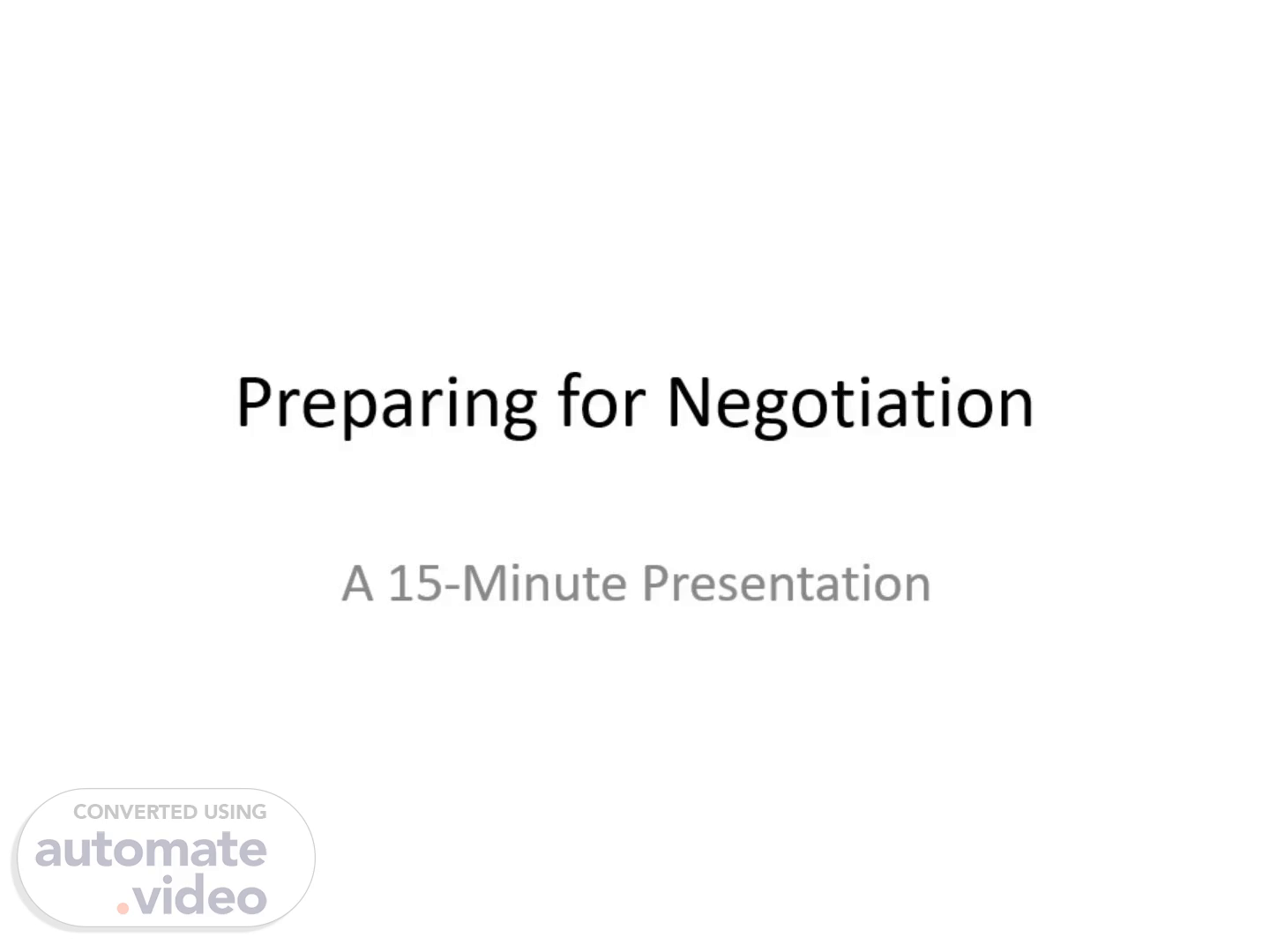Scene 1 (0s)
[Virtual Presenter] Welcome everyone. Today we’re going to explore how to prepare for negotiation—a key factor that separates successful outcomes from missed opportunities. Whether you're negotiating a deal, a job offer, or a workplace issue, preparation gives you the edge..
Scene 2 (20s)
[Audio] Negotiation isn't improvisation—it's a strategic exchange. Preparation boosts your confidence, reduces the chance of surprises, and helps you shape the conversation. If you're not prepared, you might accept less than you deserve or walk away from a win-win deal..
Scene 3 (37s)
[Audio] Before entering any negotiation, define what you want. Your goals should include must-haves, nice-to-haves, and deal-breakers. Be honest with yourself—this clarity helps you stay focused when the discussion gets tough..
Scene 4 (54s)
[Audio] Not all objectives carry equal weight. Prioritize them to know where you can compromise. Consider long-term relationships versus short-term wins. For example, retaining a client may matter more than maximizing revenue today..
Scene 5 (1m 9s)
[Audio] Knowledge is power. Understand the other party's needs, pressures, and negotiation style. This will help you craft offers they're more likely to accept and spot when you have more leverage than you think..
Scene 6 (1m 22s)
[Audio] Use all available tools—LinkedIn, company websites, news articles, even casual conversations with mutual contacts. These can reveal what matters to them, whether it's deadlines, cost savings, or long-term collaboration..
Scene 7 (1m 38s)
[Audio] Your BATNA—Best Alternative to a Negotiated Agreement—is your safety net. If this deal doesn't work out, what's your next best option? Knowing this gives you the strength to walk away from a bad deal..
Scene 8 (1m 53s)
[Audio] Let's review this chart. It compares your current offer to alternatives, like a different project or walking away entirely. If an alternative scores higher overall, you may want to walk away—or use it as leverage to improve the current offer..
Scene 9 (2m 11s)
[Audio] Don't just identify your BATNA—improve it. Look for new opportunities, backup plans, or better offers. A strong BATNA boosts your confidence and helps you negotiate from a position of strength..
Scene 10 (2m 24s)
[Audio] Rehearse key parts of the conversation, especially your opening and potential objections. Practicing out loud—ideally with a partner—makes you sound polished and calm, not robotic or unprepared..
Scene 11 (2m 37s)
[Audio] Here's your prep checklist. If you do these four things—set goals, research, define BATNA, and rehearse—you'll walk into negotiations well-equipped to reach a favorable and fair outcome..
Scene 12 (2m 51s)
[Audio] Remember, "Failing to prepare is preparing to fail." Preparation turns anxiety into confidence and improves your results. It's not just what you say—it's what you bring to the table before you even speak. Thank you!.
